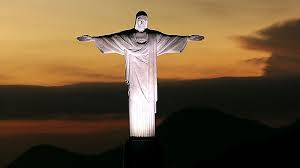By Ricardo Setyon
March 29 – The legend of the Maracanã stadium, with its close to 200,000 people cheering on a Sunday match, is a legend that is disappearing in the mists of time. Gone are the days when Fluminense, Vasco da Gama, Flamengo and Botafogo, would show why Brazilian football and its iconic players enchanted the Brazilian fans and the world.
Ronaldo, Romario, Leonardo, Zico, all touched football fans’ lives, with their wonderful play, after spending their youth and first steps, in clubs such as Olaria, São Cristovão, Madureira, América or Portuguesa Carioca, and Americano, clubs that barely exist these days.
And what has become of the traditional, much anticipated and important Carioca League ?
The so called Rio de Janeiro State League is “perisshing. Vanishing in front of our eyes”, Luiz Velloso, ex- presidente of Flamengo and owner of
sports paper Jornal dos Sports, told Insideworldfootball.
Football commentator Yata Anderson summed up the situation: “Stadia with not more than a couple of hundred fans, teams that at the end of a match have still to pay the expenses, more than they earn in attendance, and a very very confused management, has now created an unimportant and almost troublesome tournament”.
A monster has replaced what was once a happy and incredibly traditional and skillfull tournament.
Originally created in 1906, the Carioca became even stronger, when a geographical fusion happened in 1979, when the Guanabara State joined the Rio de Janeiro State.
Rio de Janeiro was also the capital of the country, until 1960, so local football had all it needed, as well as the (then) biggest stadium on earth, the Maracanã. But times change and as national sports paper Lance!, puts it: “The Carioca League is now a horror show.”
Criticism is primarily directed at Rubens Lopes, the president of the Rio de Janeiro State League, and a series of poor decisions that have left local media stunned.
For example, Lopes decided to play matches with empty stands, and with no income benefit to the clubs, but call them profitable matches by using the season’s TV revenue figure to mask the real situation.
Another aberration in the stats is that the 25% of tickets, given to both teams involved in any given match, are officially reported as “sold” tickets – whether they were actually sold or not.
As the situation worsened the local Football Federation unilaterally stepped in to set ticket prices so low that revenue failed to cover the cost of opening the stadium and paying officials.
Clubs are now facing problms with player injuries incurred in very poorly cared for stadia.
As René Simões, the famous coach at the 1998 France World Cup with Jamaica’s Reggae Boyz, said: “It is imposible to practice football in those spaces…those are not football pitches. They are muddy, full of holes, lack grass, and sometimes stones are found. I ask please, really please, to the responsible people: do not allow our athletes to play in such conditions! It is a disrespect to the institutions, the clubs, the fans,…to the history of our rich Rio Championship”.
There will be no change in the situation for the 2015 edition of the Rio League. And with clubs having to pay high taxes as well as a percentage of every match attendance to the Rio State Federation, even the security of players and coaches is not guaranteed.
In one Flamengo match away to Macaé, members of a violent supporters groups, simply found their way, uncontested, into the club’s dressing rooms, threatened players and employees, stole boots, jerseys and even food reserved for the players, all shown live on TV!
There was no polic action. The Macaé goalkeeper was the most unlucky, having to be taken to t hospital with a cut chin, again boradcast live on in TV in full bloody detail.
By mid March, three of the four big clubs of Rio – Vasco da Gama, Flamengo and Fluminense – cut relations with the State Federation and league organiser.
All four big clubs, due to sponsor commitments, are obliged to play in the league, but also have to keep their players safe from injuries for the soon to start Brazilian National League (Serie A).
A record low attendance was recorded when Flamengo, the club with the biggest fan base in Brazil (close to 55 million fans throughout the country), played Volta Redonda, in front of no more than 375.
Luiz Eduardo Baptista, until recently, Vice President of Flamengo, said after his resignation: “It is impossible to maintain the accounts of a professional club in Rio nowadays! It is a bankruptcy system, the one we live in, for the Rio State League.”
This is also the opinion of Paulo Angioni, Football Director of Vasco da Gama. Using his oficial Twitter account, he recently stated: “This Rio de Janeiro League is simply a ruined model. It is a road for bankrupcy of the Rio clubs, as it is being run”.
Contact the writer of this story at moc.l1745329973labto1745329973ofdlr1745329973owedi1745329973sni@n1745329973oytes1745329973.odra1745329973cir1745329973

